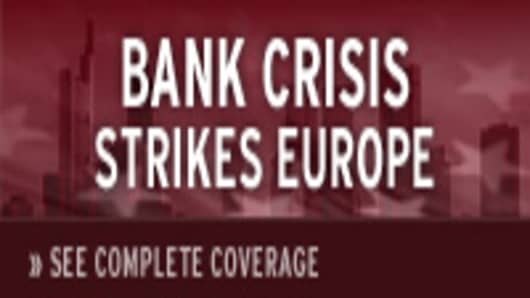Call it what you will: an act of rebellion; blind myopia; a cry for help … but I'm actually starting to believe in the global recovery story.
Oscar Wilde once observed that a cynic was the sort of person who knew the price of everything and yet the value of nothing. Quoting this line to your superiors on the bond trading floor always drew sniggers of laughter from your colleagues (it was usually seen as the last, desperate line of defense for a particularly stupid purchase in the market) but there is something to be said for the distinction.
And you might just wonder now whether investors are beginning to buy into the value proposition.
Now, let's be clear: I'm not talking about buying something merely because it's "cheap" (let's face it, there's little guarantee these days that it's not going to get cheaper). I'm talking about the moving of cash into riskier segments of the global capital markets on the assumption of some kind of coordinated recovery.
The past weekend's meeting of G20 Finance Ministers — largely glossed over by the mainstream media in favor of next month's Leaders Summit — seemed to at least manage one single achievement: its communiqué didn't result in downward lurch in asset prices.
The sensible framework agreed by the global number twos (sort out the banks and the toxic assets, get derivatives onto exchanges and accept the fact that some institutions are going to fail and shareholders are just going to have to live with it) sets us up nicely for a real and sustained push towards a tangible Leaders Summit press release.
If we can get *any* sort of co-coordinated traction from world's central banks and Treasuries on the pricing and purchasing of these assets in the coming weeks, we could well clear the first real and significant hurdle on the recovery track.
In the meantime, it's instructive to look at both the comments from those with a panoramic view of this multi-act play (Central Bankers and policy makers), those at the eye of the storm (the banks themselves) and those closer to the coal-face (investors and businessmen).
The latter seem increasing prepared to see the proverbial glass as half full, at least in Europe. Investor confidence as measured by Germany's ZEW Institute improved for the fifth consecutive month on Tuesday as the impact record-low rates in the Euro Zone claw their way into the real economy.
Bank bosses, for their part, seem bent on trumping each other with optimistic statements on operating profit, with Standard Chartered and Barclays joining the growing chorus of those institutions that are still generating business even as their balance sheets creak under the weight of dislocated junk.
- Check European Currencies Here
And Central Bank bosses, first in the form of Ben Bernanke's hint at an '09 US recovery last week, but supported by Jean-Claude Trichet's hopes of a global "conclusion" on the lessons of the financial crisis, the Bank of Japan's plans to buy subordinated loans from stricken banks and the massive stimulus put in place by the People's Bank of China, together create the cohesion and coordination (however piecemeal) the markets have been craving for.
It's no coincidence, in my view, that we've built nearly double-digit gains on the major US and European indexes since the March 9 lows as a result. The dollar has retreated slightly as risk-averse positions are unwound in the currency markets and corporate credit spreads seem to be generally (if slowly) edging back from their early-March wides.


